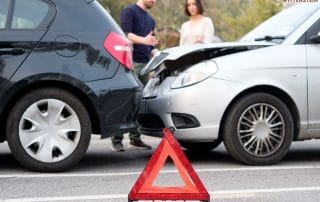
NEW YORK CITY LIQUOR LIABILITY LAWYER
The Dram Shop laws were enacted to hold those that sell alcohol responsible for accidents and injuries that result from improper sales. This is a “strict liability” tort, which means that there is an “absolute duty” not to sell alcohol to certain categories of people. It is unlawful to sell liquor to any person “actually or apparently” under age 21 or to any person that is “visibly intoxicated.” This provides an additional source of recovery for victims of drunk drivers. These are not easy cases to prove, there must be a thorough investigation including interviewing witnesses. Sometimes the hiring practices of the establishment must be investigated along with all the other facts and circumstances. This is why hiring an experienced New York City liquor liability lawyer is so helpful in these cases.
This is what needs to be proven:
- Your accident was caused by a person that was intoxicated;
- The sale of the alcohol to the intoxicated person was unlawful. (Either “visibly intoxicated” or “actually or apparently” under 21)
- The alcohol sale contributed to the person’s intoxication (ie; they actually drank it.)
The hardest part to prove is that the person was “visibly intoxicated,” as this is a subjective standard. It might be necessary to find and interview patrons to testify as witnesses as it is unlikely that the employees at the establishment will testify against their employers. This is when an experienced New York City liquor liability attorney will be able to nuance the situation.
How to show a person was “visibly intoxicated”:
The word “dram” is an old-fashioned word for a small unit of alcohol. This law provides that it is the duty of businesses that serve alcohol to make sure they do so responsibly. Some ways to establish “visible intoxication” are:
- Slurred speech
- Very loud speech
- Inability to stand straight
- Glazed or “glassy” eyes
- Aggressive behavior or fighting
- Drooping eyelids
- Unfocused or lack of eye contact
Dram Shop liability also arises in cases of bar and nightclub assaults. When too much alcohol impedes inhibitions and causes aggressive behavior, an establishment can be held liable. The individual that caused your injuries and the bar, nightclub or restaurant are all responsible, but it is much more likely that the business will have insurance to cover this type of claim. If you have been injured due to a violation of the “Dram Shop” Act in New York City (Queens, Brooklyn and Kings County, The Bronx, Staten Island and Richmond County, Manhattan or New York County or Long Island, we will leave no stone unturned to get you the justice you deserve. Call New York City liquor liability lawyer Wittenstein & Wittenstein at 718-261-8114 for a free consultation.
NEW YORK CITY LIQUOR LIABILITY LAWYER
N.Y. General Obligations Law § 11-101.
(The “Dram Shop” Act)
Compensation for injury caused by the illegal sale of intoxicating liquor:
1. Any person who shall be injured in person, property, means of support, or otherwise by any intoxicated person, or by reason of the intoxication of any person, whether resulting in his death or not, shall have a right of action against any person who shall, by unlawful selling to or unlawfully assisting in procuring liquor for such intoxicated person, have caused or contributed to such intoxication; and in any such action such person shall have a right to recover actual and exemplary damages.
2. In case of the death of either party, the action or right of action given by this section shall survive to or against his or her executor or administrator, and the Amount so recovered by either a husband, wife or child shall be his or her sole and separate property.
3. Such action may be brought in any court of competent jurisdiction.
4. In any case where parents shall be entitled to such damages, either the father or mother may sue alone therefor, but recovery by one of such parties shall be a bar to suit brought by the other.
CREDIT(S)
(L.1963, c. 576, § 1; amended L.1980, c. 281, § 20.)






